What is Homestuck? Since the success of its Kickstarter, that’s what everyone has been asking. What is Homestuck? Well, that is the rub; in fact, “let me tell you about Homestuck…” has become an internet meme in its own right.
First off, let me say this: what Homestuck is and what Homestuck is about are two entirely different things, but they usually get lumped into the same breath, which really confuses things.
Don’t get me wrong; Homestuck is confusing on its own. Homestuck starts slow, with a measured mundanity punctuated by petty struggles wrought in epic terms…which provides only a baseline to be shattered by the surreal. For a story that is so big it contains worlds… and underworlds. The level of detail and complexity can certainly be maddening, even brutally so, but that is what the MS Paint Aventures Wiki is for. I’ll try to express in my own clumsy way what Homestuck is, and what Homestuck is about, but in all honesty, the only way to understand it to experience it for yourself.
Homestuck is a story told by Andrew Hussie using the full breadth and scope of the tools the internet provides, both technologically and culturally. Superficially resembling a webcomic, Homestuck takes the basic format of a panel-by-panel graphic story and twists it into something else. Instead of static images, many of the panels are animated .gifs, some obviously and some subtly. Moments of climax are often Flash movies, while pieces of exposition are often told in the form of “chat logs.” That isn’t even the half of it. The multi-disciplinary nature of Homestuck goes deep; illustration, animation and literature are alongside music and actual playable games.
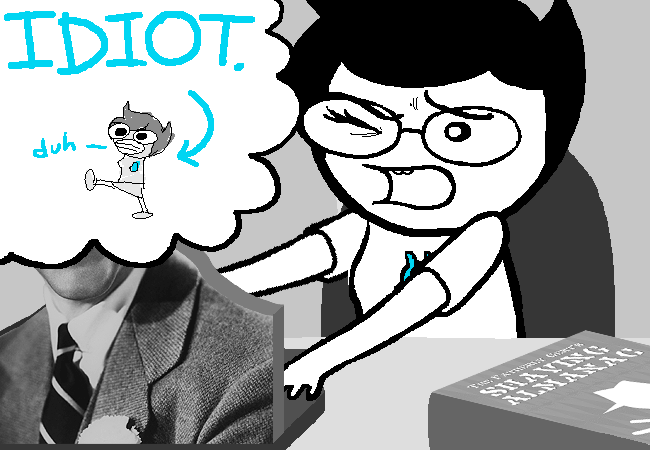
What else is it? Well, Homestuck is part of MS Paint Adventures, created by Andrew Hussie originally as a slightly different beast. His early stories, Bard Quest and Jail Break, had a much more “decision tree” conception, with the key twist that the different pathways were created by user generated suggestions. It made things…surreal, and quickly untenable. It was Problem Sleuth that really crystalized MS Paint Adventures into an engine of narrative creation. A story about a detective that parodied the Zork-style adventure game commands, Problem Sleuth used a mixture of user’s suggestions along with Hussie’s own guiding hand in order to tell a…well, a Dali-esque noir involving weasels, gender swapping, and the power of imagination. A post-modern creation of internet culture and self-reference, it laid down the roots that Homestuck sprung directly from.
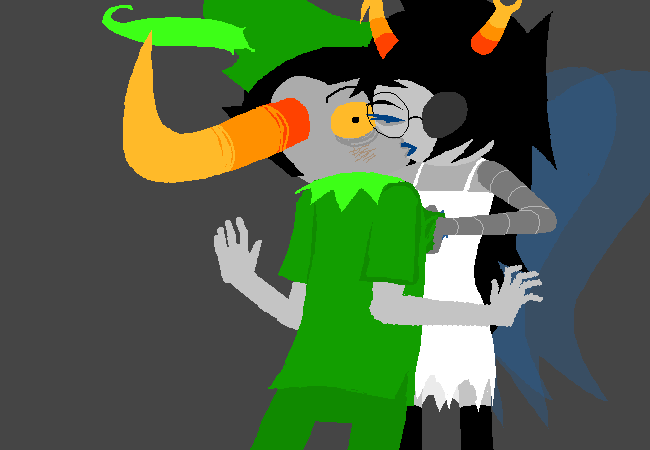
What is Homestuck about? Well it is about four kids who are trapped inside by their various parental units and decide to play a multiplayer online game, at which point all hell breaks loose and they end up in another world. That is sort of a rough approximation of the overall plot for a long chunk of it, but it really hardly scratches the surface. It is a story in which internet trolls are actual trolls. It is the story of those trolls—if you’ve noticed Homestuck before now, you probably know what they look like. Vriska, by the way, is the best troll. Oh, you can’t forget the Wayward Vagabond and the rest of his exiled carapacian ilk. Or for that matter, the intermission with the Midnight Crew and the Felt, or the narratively cataclysmic Scratch, the Alpha kids, Jackspers Noirlecrow, or…oh okay. See, this is how discussions of “what is Homestuck?” tend to go awry. Imagine trying to explain your favorite cartoon to someone who has no frame of reference. You can’t. You want to keep trying, because it is fun to try to parse it all, but any chance of actual communication is out the door. Explaining Homestuck is like that, but more so.
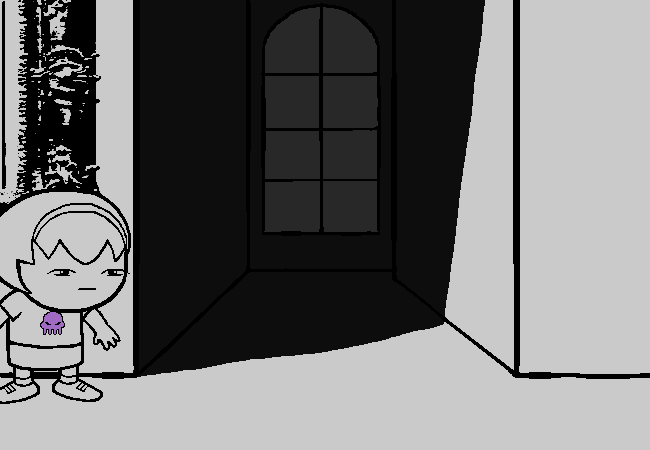
Homestuck is very, very big. MS Paint Adventures is the longest webcomic out there, with more than 7,000 pages, so there is an intimidating body of work to get through…or, if you are an optimist, there is tons of stuff to enjoy. So saying what it is about is a herculean task. It is about…adventure and role playing games? Well, sure, that sort of underlies the foundational logic and language of the series. It is just as much a soap opera about kissing aliens, though. Maybe I should assert that Homestuck is a post-modern masterpiece about breaking the fourth wall and making the most of both author insertion and audience participation? I guess I could sum it up as a comic involving video game and internet culture that spawns more memes, which it then perpetuates in a cycle of self-reference between fandom and the author? Maybe I should discuss the quadrants of troll romance and how they relate to the bildungsroman? Oh wait, I’m doing it again. I give up. Just listen to the artist explain in his own words.
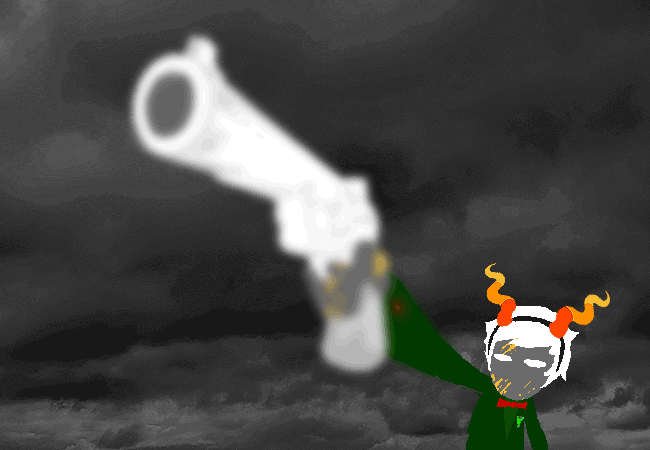
Recently, PBS’s The Idea Channel asked “Is Homestuck the Ulysses of the Internet?” I don’t know enough about James Joyce to really weigh in on that—I wasn’t an English major, so I missed the canon, though my anthropology degree lets me have armchair opinions about Neanderthals—but I will say that I think it is the first major piece of literature to really take advantage of the internet in the way it was intended. I guess the reason college is on my mind is that when I was a wee student, “hypertext fiction” was all the rage…but it never really panned out.
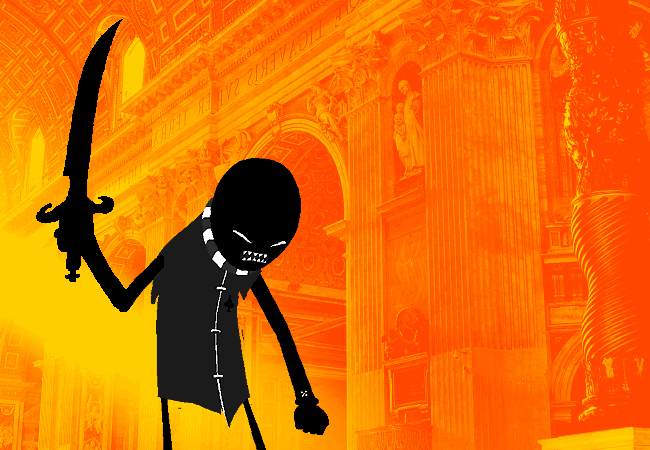
“Hypertext” meaning, on one hand, stories with active links that allowed you to jump around, but on the other hand that logic was extended to non-linear novels, like…well, Borges and Ulysses and Nabokov’s Pale Fire. Short of Choose Your Own Adventure books, It always seemed precious and academic to me, though some stories made it work, like Danielewski’s House of Leaves. I say: Homestuck is the first great work of genuinely hypertext fiction. If that puts it in the same breath as Ulysses, then so be it.
Mordicai Knode is a fan of: Rose for the Beta Kids, Vriska for the Trolls, Roxy for the Alpha Kids and Kankri for the Ancestors. Candy Corn Vampire is his favorite Pumpkin Gambit Schema. He’s also a fan of Twitter and Tumblr!










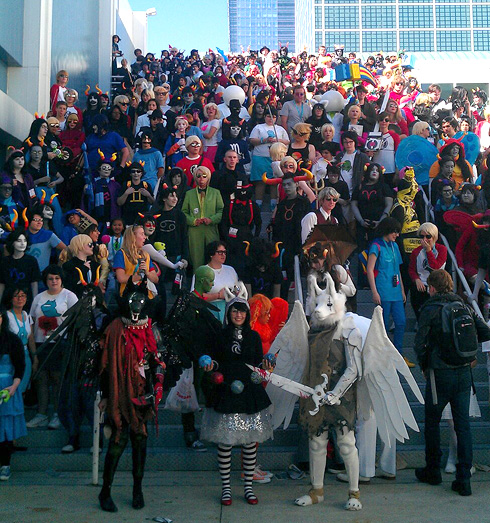
Homestuck sounds amazing, it really does. But there’s about 4 hours of really, really boring and unfunny pages of the main character derping around his house without arms before any of that starts, and I’ve been absolutely unwilling to waste that much of my time just to get to the part where it gets interesting.
1. ZetaStriker
There is a very long, long period of screwing around in the eponymous “Home” of Homestuck, but like I say, it is purposeful, to set a context so that the context can be broken in half. & I will say this: at some point, that goofing around suddenly crystalizes into something sublime. For me, it is when the first battle menu pops up, but I’ve heard other answers, like the pogo ride.
I am so using this piece in the Wikipedia article. Thanks so much for writing it.
Fwiw, I found the first couple of acts or so of mostly stuck at home stuff amusing-to-hilarious because of how precisely it captures the feel of the sort of game Hussie is parodying, complete with when such games get frustrating and when they get monotonous; i think he judges the timing on the latter far too tightly for the cartoon as a whole to ever get boring.
3. Sterling Ericsson
Post-internet encylopedia plus post-internet fiction; a match made in
heavenProspit!4. EmmetAOBrien
As someone who has played those kinds of “inventory managment” & “trial & error combination” games in a pre-internet world, I totally agree, but I can see how someone without that gaming background would be frustrated by Sylladex shenanigans.
Even with my love of old Lucasarts adventure games, I just didn’t have it in me to sit through the opening segment. I may look into seeing if there isn’t a way to jump ahead to a point after all that time wasting though. From what I hear it gets quite good afterward.
6. ZetaStriker
ZETA STRIKER.
IF YOU ARE READING THIS IT MEANS YOU ARE NOW STRONG ENOUGH TO POWER THROUGH THE FIRST CHUNK OF HOMESTUCK. YOU ARE NOW READY.
I AM SO PROUD OF YOU.
Okay wait, I promised myself I wouldn’t turn this into like, a TV Tropes page. Suffice to say, even if you just idly click through, just give it a chance to grab you. You’ll be a convert.
It is like hypertext in that a reader is able to start the story at any point in its run, read it by working outwards, forward and back from the immersion point, doing the same thing in parallel from subsequent immersion points, and do just fine.
I actually read quite a lot of it in reverse.
8. normalphil
Where did you jump in at? I started reading the comic when Problem Sleuth was about halfway done, but I started at the beginning of that; when Homestuck started I naturally started at the beginning since…well, that was where I was.
@Mordecai
5x Showdown combo, Seek the Highblood, WV: Rise, and First Gristmas. Read switching between tabs, some moving forward, some moving back, some both.
Worked quite well; I absoarbed it, it was entertaining.
normalphil@8; Gosh. I can think of fewer things I’ve been less happy about the occasional spoilers I got before catching up with, or would have been less happy to experience out of strict linear order, because Hussie does some of the most satisfying plot pacing I have ever come across.
Mind you, I did then go back and read the whole thing again to see how many crosslinks I had missed the first time.
I disagree with the suggestions to skip, read in reverse, or jump around. Aside from the first two acts (which are miniscule in comparison to the rest, honestly) establishing informative and consistent characterizations, skipping or non-sequential reading breaks the method that the story conceptually reveals itself. Homestuck is constantly pulling back the curtain just a little more, and with every tug you learn something that completely redefines your perspective on *everything* that has taken place before it. This holds true for the characters as well; as you go on in the story you learn things about them that redefine their entire history. This is definitely one of the most enjoyable aspects of the story.
This is a site composed of people that read The Wheel of Time and other fantasy epics. You people got through Crossroads of Twilight, and the first two acts of Homestuck are far more entertaining, more action-packed, and far more funny that that was. Kick back, enjoy the adventure game parody, laugh at the jokes, and savour the developing mystery. It’s worth it.
(unexplained chain of events) -> (“What is Homestuck?”) -> 5x Showdown Combo -> (“…What is this thing? Must know now.“) -> (Most efficiant and rapid approah to digesting the context I could envision)
Making no suggestions or recommendations, it was fun going. If you wish to see it meta, it turned out that I Trolled Homestuck.
The thing about the slow start of Homestuck is that it prepares you so that similar circumstances can be repeated in the story more rapidly without a reader losing comprehension. A later act can introduce three times the characters and all their interrelationships while exploring a strange culture because it’s free to skip back and forth past the stuff that would unfold roughly the same tedious way as we saw before. It’s a very clever way of crafting a story.
Homestuck is the internet’s analogue to Ulysses, but with emphasis on ‘the internet’ part. It’s built from what you find on the internet: ’80s/’90s nostalgia, obscure video game references, trolls, metafiction, shipping, disturbingly impressive fans, and mountains of Nicolas Cage memes. If you could rebuild Dublin from Joyce’s depiction of it, you could rebuild the Internet from Homestuck.
And that’s really all there is to say on the matter.
Homestuck is a staggeringly impressive creative achievement. Sprawling, ambitious, very funny, and it desperate need of an editor. It also, for reasons I don’t fully understand, promotes obsession from a certain type of internet-addicted teenager. A lot of kids seem to really see themselves in the characters, or perhaps see how they could fit into the highly templated, video-game like characterization system.
I haven’t been a teenager for a long time, but I’ve been reading this damn thing for 3 years and there’s no way I’m getting off this train before it gets to wherever it’s going.
15. Rootboy
The fact that I can see a kid on the train with a Problem Sleuth sticker on their notebook & go “hey kid, nice MS Paint Adventures gear” & have then be all “nice one, old man!” is kind of cool, yeah. Youth culture killed my dog!
I respect the scope of Homestuck, but I can’t seem to muster any care to check it out for real. And most of the fans I’ve come across are all just horrible people.
17. AsheSaoirse
I think, like with any fandom, there are always vocal toxic elements, but– like with any fandom– there are also deeply talented people who deepen the mythos with their participation. There are a few Homestuck cosplay & art blogs I follow that very much make me go “woah.”
@17+18 Absolutely. As a lurking member among the fandom itself, I’ve witnessed first hand how Homestuck provides an incredible scope of human creativity and artistic accomplishment combined with unhealthy obsession and hatred. I think this is true in any fandom, but with an arising new artform like Homestuck where the fandom provides half of the experience, it is amplified. -shrug- You gotta take the good with the bad, and in Homestuck’s case, the extremely good with the extremely bad.
@mordicai: Thank you for the excellent article. :D It’s always great to hear more publicity about this beautiful phenonemon.
19. The Pope
I’m glad you liked it; I think Homestuck should be a household name, you know? I think everyone should be talking about it, whether they love it, hate it, think it is too pretentious, think it is too mindless, whatever.
Fandom is a body composed of people. As with any body of people…some will rule, & some will…not rule.
Everyone wants to compare Homestuck to Ulysses, but apart from the whole “effort justification” thing I don’t see much of a connection. If you’re going to compare Homestuck to a work of literature, it’s gotta be Tristram Shandy. Tristram Shandy appeared early in the history of the novel, and resembled nothing that had come before it. It’s a vast, rambling, highly experimental comedy loaded with pop culture references (18th century pop culture, that is), and perhaps the first novel to ever fully explore the possibilities of the medium. Sound familiar?
21. Aaron Jansen
Or Clarissa, with it’s very blatent textual & typographic tricks?
Clarissa’s not a bad comparison. It’s huge, for one, and plays a lot with what the novel is capable of doing. But in terms of actual content, it’s a not terribly amusing tragedy. That’s why I feel like Tristram Shandy, with its wacky comic spirit, is the closest analogue to Homestuck we are likely to find in 18th century English literature. Of course, being a work of 18th century English literature, it’s still pretty distant.
My main point is that, while it’s difficult to tell now where Homestuck will stand in the history of the internet, given that the internet’s only been around twenty years or so I’d guess “really, really early.” When Ulysses was written, novels had been around for 200 years or so; there was a long history of conventional novels that Joyce’s experimentalism was in reaction to. Homestuck is also wildly experimental, but in the more playful, less purposeful way of early novels, whose authors were simply excited by the possibilities of a new mode of expression. If we’re looking for literary analogues to Homestuck, we should be looking at books written before the conventions of the novel had been established, since there isn’t really a firm tradition of hypertext or internet fiction yet.
On a less profound note, Roxy FTW.
24. Aaron Jansen
I’ve thought about it & I’m still a Rose, when it comes to Lalondes.